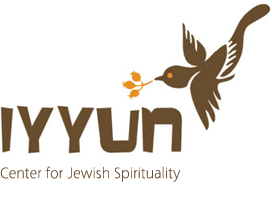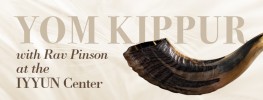A Night of Freedom
The night of Passover is the night of our freedom, it is a time in which we can free ourselves of all exiles, both personally and collectively and attain a measure of freedom. We celebrate the going out of metzrayim – Egypt, which can simultaneously be read as transcending our limitations and constrictions. Exile is a condition of alienation; an experience of disconnection and displacement. Conversely, redemption is to return, and on its deepest level to return from the alienation we experience from ourselves.
The Four-fold Path
The number four resonates throughout the Seder suggesting the divine interconnectedness of the disparate directions and elements. Multiplicity is a concealment of the actual unity. As we will review, the four cups of wine reveal our redemption from the four types of exile, the four questions inform us of the specific mitzvoth of the Seder, and the discussion among the four sons in the haggadah illustrates the archetypes of the four levels of consciousness and redemption.
Four steps to Freedom
An important ingredient of the Passover seder are the four cups of wine which are drunk throughout the night. But why four cups, and why wine? Besides the obvious connection between intoxication and lack of inhibition and social constraint, what is the relationship between wine and freedom?
The Jerusalem Talmud explains that the four cups of wine represent the four terms or expressions the Torah employs with regard to the Exodus from Egypt: “I will take you out,” “I will save you,” “I will redeem you,” and “I will take you to Me.” All four invocations are elements of a single process of redemption. When we drink the cups at the Seder, we are meditatively tapping into the deepest reality of our redemption.
The Secret of Wine
We tap in with wine. The Hebrew word for wine is yayin and, as the Talmud elaborates, has the numerical value of 70. This is the same value as the word sod -secret. As such, “when wine goes in, the secrets come out.”
Wine comes from the hidden depths of the grape, and it ferments in a concealed place. When we drink wine, we reveal its latent powers. Similarly, our redemption comes from a deeper, hidden universe where it is revealed that everything is eternally unified and whole. In order to reveal the power of redemption, we need to internalize it and experience it. Yet, in our world of multiplicity, oneness is perceived by means of “four”. When we break the redemption down into a four-fold process, we can begin to digest it. This is why we drink four cups of wine at the Seder.
Four Levels of Exile
As the four cups represent the four stages of our freedom they also in turn reflect the four principal forms of exile, which were embodied by the Babylonian, Persian, Greek and Roman. Each of these four exiles included the quality of the exile before it. Thus, in our current exile, we experience the qualities of all four, corresponding to the four levels of our own conscious awareness. There are exiles and constrictions that can occur on a physical /bodily, emotional / psychological, philosophical /theological, and ontological/existential level.
There is an exile of the guf/ body, and there is an exile of the nefesh/ spirit, emotional and psychological. There is exile of seichel / intellect, philosophical and theological and there is exile of hakal /everything, totality, ontological and existential.
The essence and intention of the Pesach seder evokes an experience of liberation on each level of exile, and on each level of awareness. When we meditate on the four terms of freedom with each cup, this experience becomes all the more vivid.
First Cup
The first cup corresponds to the exile on a bodily guf level. This is reflected in the Persian exile which is the story of Purim. In the tale of Purim Haman literally wanted to destroy us by killing our bodies. This exile corresponds therefore to our physical selves. The Divine antidote is, “I will take you out.” I will move you from your place of physical constraint and put you in a place where you can attain freedom.
We activate this power when we choose to separate from the mundane world and take on a spiritual focus. This is precisely what we do with the first cup, which is the cup of Kadesh, the cup upon which we recite the Kiddush. The word kodesh, holy, translates in Hebrew as detached, transcendent, or separate. We stop all of our preparations for the Seder, we physically move away from these more mundane activities, walk to the table and then we quiet ourselves and make the blessings over wine. Through this meditative action we have just walked out of the mundane world, our personal and physical confinements into the sacred world of the Seder. Suddenly everything looks different. After making Kiddush we perform Urchatz- we wash our hands. In doing this, we cleanse ourselves of any residue of distraction and physical constrictions in order to sit down and be fully present for the Seder.
Second Cup
Having moved away from any physical constrictions or distractions, we now aspire to attain a sense of spiritual and emotional freedom. The second cup speaks of the liberation of our spirit. The Babylonian exile is an exile which began with the destruction of our spiritual center, the first Temple in Jerusalem. After this trauma, we lost the mystical art of prophecy. This is an exile on the level of nefesh, spirit. The Divine antidote is “I will save you.”
We reveal the power of this passage when we speak the Haggadah and awaken spiritual emotion. “My Spirit comes out through speech,” when we recite Maggid, the story of the Haggadah, over this second cup of wine, we become excited. We free ourselves emotionally when we and our children sing the Mah Nishtanah, and we tell the story of our liberation. During Maggid, we begin to process our liberation on an emotional level.
Third Cup
Having gone through the story in great detail, awakening and engaging our emotions and imagination accordingly, we now move into a mindful place and begin the process of freeing our minds.
The third cup corresponds to the Greek exile. The Greeks attempted to Hellenize the world, including Israel, by means of intellectual enlightenment. This was an exile on a level of seichel -mindful awareness. The Divine antidote is “I will Redeem you.” We reveal the power of this verse over the third cup, when we begin to focus our Kavanah – mindfulness and intentionality on the many mitzvos of the Seder night. We recite the mitzvah of blessing after the meal, on the third cup. Preceding this we are careful to eat certain halachically stipulated amounts of matzah and maror, and we eat them with deep mindful Kavanah.
Fourth Cup
Being freed physically, emotionally and now mentally, having arrived to the table, completed the main telling over of the story, and performed most of the mitzvos of the night, we enter the domain of the fourth cup. This fourth cup corresponds to the Roman exile. In this exile, every level of our being was and is challenged, and aspects of each of the previous exiles are included within. Therefore, it corresponds to hakal, the totality of our awareness. The Divine antidote to this exile is “I will take you to Me.” The power of this text is revealed when we recognize that we belong completely to our Creator. The Creator takes all of each of us during Hallel and Nirtzah which are recited over this cup. With Hallel, we soar in ecstatic praise, for all of our spirit, body, emotion and intellect are tasting the wine of redemption. Nirtzah is the only part of the Seder where there’s nothing at all to do except realize our total oneness with our Source, and to overflow with the bliss of freedom consciousness.
The Hidden Cup
And then there is the hidden fifth cup, the Cup of Elijah. Tradition has it that Elijah is the one who ushers in the ultimate freedom for all eternity, and this cup we do not drink. This cup is beyond “seder“, beyond order or process, beyond actions or recitals.
The Four Questions
Similarly the Ma-Nishtana also reflects this process. The first question concerning dipping reflects Asiya (the world of actualization and physical reality). Dipping the Karpas first in salt water reminds us of the tears of affliction and the later dipping of the Marror in charoset reminds us of the sweetness of our physical liberation form metzrayim. The second question concerning Matzah embodies Yetzirah (the world of formation and process). Matzah, juxtaposed to chometz, is a reminder that we must transcend our inflated egos of the everyday and approach humility before we are able to approach emotional redemption. The third question brings us to Beriah (the world of creation and potential). The sharpness of Marror clears our minds, thus elevating our consciousness into Beriah. Finally the fourth question which refers to reclining reminds us that we have arrived, and have reached Atzilut (the world of emanation and nearness), because reclining epitomizes a stillness juxtaposed to standing (walking) or sitting which are temporary conditions.The Four Sons
Finally, the discussion between the fours sons also epitomizes the four levels of consciousness and redemption. In progressive order, the chocham reflects Asiya because his cynical intellect introduces the concept of the pointlessness of having a seder. Because he is passionate about his questions, the rasha exists in Yetzirah, the emotional universe. The tam paradoxically exists in Beriah because in asking questions which are unassuming in there simplicity he dialectically receives knowledge. And She’ena Yodeah Lishal, because he does not need to ask a question, has already arrived, which exemplifies Atzilut.
The Set Table
The following table is to aid your understanding how the different variables between each realm correlate and interact with each other. Included in the table is a column with reference to the letters in the name of Hashem which is a wonderful access point to understand the significance of how the four cups correlate to the four exiles and the four realms of redemption.
| The Four Cups Mapped on the Internal Structure of Reality | ||||||
| Divine Name | Exile | Level | Question/ Practice |
4 Sons | Universe | Consciousness |
| Hei | Persian | Guf (body) | Dipping Twice | Chacham (wise) | Asiya | Nefesh |
| Vav | Babylonian | Nefesh (spirit) | Matzah | Rasha (rebel) | Yetzirah | Ruach |
| Hei | Greek | Seichel (mind) | Maror | Tam (simple) | Beriah | Neshamah |
| Yud | Roman | Hakal (transcendence) | Reclining |
|
Atzilut | Chaya |
| The Fifth Cup: Elijah’s Cup | ||||||
| Divine Name | Consciousness | Level | Universe | |||
| Kotzo Shel Yud | Yechidah | Infinity | Keser | |||
May your seder be truly redemptive, and may the process of freedom be assimilated in all your four levels of being, until you reach a place of true freedom, beyond all limitations.
Comments are closed.







